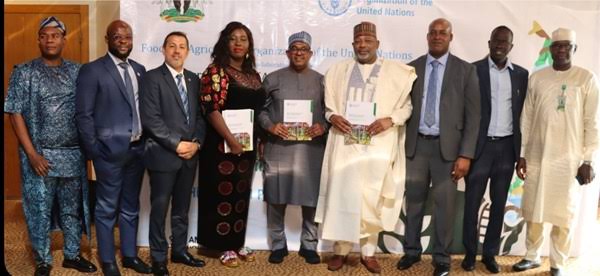The Food and Agriculture Organisation of the United Nations (FAO), in partnership with the Federal Ministry of Agriculture and Food Security, has unveiled the 2025 Nigeria Food and Agriculture Policy Monitoring Review (PMR), a major step in shaping evidence-based agricultural transformation under the National Agricultural Technology and Innovation Policy (NATIP).
Developed with technical support from FAO’s programme on monitoring and analysing food and agricultural policies, the report provides a multi-year assessment of public spending and commodity price incentives. It offers in-depth insights to strengthen policy implementation and guide investment planning in the sector.
At the launch in Abuja, Nigeria’s Agriculture and Food Security minister described the report as timely, noting that it coincides with government preparations for the 2026 national budget. He stressed that ensuring food security remains central to the administration’s agenda, adding that credible data from the review will help government and partners make informed decisions on expenditure and resource allocation.
The FAO representative in Nigeria highlighted the review as part of FAO’s ongoing commitment to agricultural transformation. He explained that the recommendations are based on consultations with government and stakeholders and are designed to support inclusive growth, food security, and sustainable development.
Findings from the review showed that rice has been boosted by protective trade measures, raising domestic prices and supporting producers. By contrast, maize and sorghum continue to face disincentives due to poor market integration and restrictive trade policies. Cash crops such as cocoa and cashew remain challenged by issues of quality control, high logistics costs, and exchange rate pressures.
The event gathered senior government officials, development partners including the World Bank, private sector actors, and farmer organisations for strategic dialogue on the future of Nigeria’s agricultural policy.










